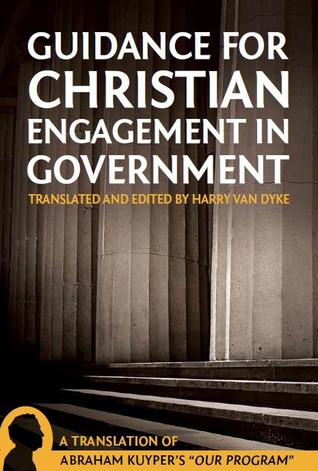- Bible
- Read the Bible
- Bible Versions
- Verse of the Day
- Reading Plans
- Verses by Topic
- Books of the Bible
- Bible Images
- Study
- Commentaries
- Concordances
- Dictionaries
- Encyclopedias
- Sermons
- Bible Atlas & Maps
- BP Wiki
- Devotionals
- Today's Devotionals
- Light of the World
- All Devotionals
- Inspirational Quotes
- More
- Picture Quotes
- Videos
- Inspirational
- Bible Study
- What The Bible Says
- Bible Q&As
- Daily Bread
- Bible by Genre
- Bible Stories
- Random Bible Verse
- Community
- Store
Guidance for Christian Engagement in Government
by Abraham Kuyper
Abraham Kuyper’s Our ProgramOur Program was originally written to inform people participating in the Dutch general elections of 1879. The French Revolution was long over, but not its ideas. The influence of modern life and its secularizing influence was growing and reshaping the minds and hearts of Europeans and the rest of the Western world. What should the Dutch people believe and understand on the basis of Scripture, sound reason, and common sense?
Kuyper reminded them of their Dutch Calvinist heritage and the legacy left to them by the freedom fighters against Spanish tyranny in the sixteenth century. But Kuyper wisely concluded that they should not strive for a “Calvinist utopia” but rather for a pluralist state, one in which all groups enjoy a level playing field as they try to enlist support for their vision of a just society. So he laid out the intellectual architecture of what we now call “sphere sovereignty,” an ordering principle that takes on new and contemporary relevance as globalization reorganizes governmental and nongovernmental jurisdictions.
Kuyper’s antirevolutionary (or Christian-historical) vision attempts to remedy the failure of modernity to satisfy the human spirit and its propensity to establish monstrous tyranny. As the emancipator of the then still disenfranchised middle and lower classes in his country, Kuyper in this English translation of his seminal foray into political theory and practice takes his place beside Locke and Tocqueville as a titanic European intellect whose thought can help us understand the American experiment in religious liberty and constitutional democracy.
Kuyper reminded them of their Dutch Calvinist heritage and the legacy left to them by the freedom fighters against Spanish tyranny in the sixteenth century. But Kuyper wisely concluded that they should not strive for a “Calvinist utopia” but rather for a pluralist state, one in which all groups enjoy a level playing field as they try to enlist support for their vision of a just society. So he laid out the intellectual architecture of what we now call “sphere sovereignty,” an ordering principle that takes on new and contemporary relevance as globalization reorganizes governmental and nongovernmental jurisdictions.
Kuyper’s antirevolutionary (or Christian-historical) vision attempts to remedy the failure of modernity to satisfy the human spirit and its propensity to establish monstrous tyranny. As the emancipator of the then still disenfranchised middle and lower classes in his country, Kuyper in this English translation of his seminal foray into political theory and practice takes his place beside Locke and Tocqueville as a titanic European intellect whose thought can help us understand the American experiment in religious liberty and constitutional democracy.
BUY NOW
Paperback, 398 pages
Published 2013 by Christian's Library Press (first published 1879)
© 2025 Bibleportal.com All rights reserved.

Abraham Kuijper, generally known as Abraham Kuyper, was a Dutch politician, journalist, statesman and theologian. He founded the Anti-Revolutionary Party and was prime minister of the Netherlands between 1901 and 1905.
In May 1862 he was declared eligible for the ministry and 1863 he accepted a call to become minister for the Dutch Reformed Church for the town of Beesd. Around 1866 he began to sympathize with the orthodox tendency within the Dutch Reformed Church. He was inspired by the simple reformed faith of Pietje Balthus, a farmer's wife. He began to oppose the centralization in the church, the role of the King and began to plead for the separation of church and state.
In North America, Kuyper's political and theological views have had a significant impact, especially in the Reformed community. He is considered the father of Dutch Neo-Calvinism and had considerable influence on the thought of philosopher Herman Dooyeweer
... Show more